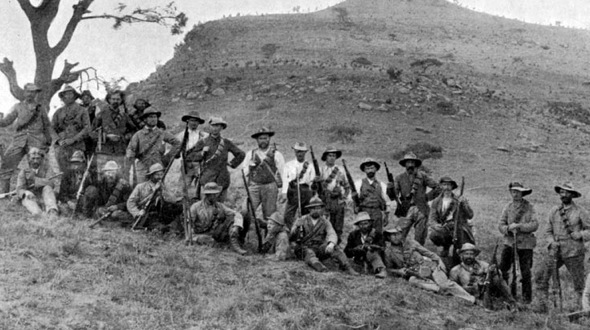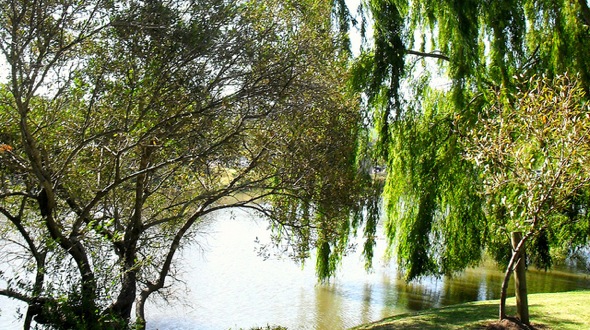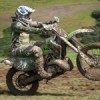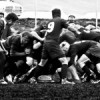
Boers at Spioen Kop - photo from Wikipedia Commons
South Africa is historically an ex British colony and had an influx of various European immigrants during and after the seventeenth century. They arrived from Britain, Holland, France, and Germany, and more so when it was discovered that South Africa was rich in gold, diamonds and other precious resources.
Apart from the many original tribal languages spoken in this magnificent country, English and Afrikaans became the official languages. Afrikaans, a language based on a mix of largely Dutch and some German.
I was born and grew up in South Africa and went to an Afrikaans school in Pietermaritzburg, the capital city of the province of Kwa-Zulu Natal, KZN for short. It is home to the Zulus being the largest black tribe in the country and named aptly after them. KZN has a very large English speaking community, because historically many British settlers made KZN their new home.
I was born from an English mother and my father was Afrikaans. Afrikaans was dominant in our home, although we often spoke English to our mother.
The English called the Afrikaners “rock-spiders” and the Afrikaners called the English “rooinekke”. It was serious war between the rock-spiders and the rooinekke. Other more derogatory names were also used at times but we won’t discuss them here.
“Rooinekke” derived from the fact that when the British arrived in South Africa a real war called the Anglo-Boer War started between the Afrikaners and the British. This war continued for three years and many people died as a result. The British being very fair-skinned got serious sunburn from the harsh African sun which colored their necks bright red. Red in Afrikaans is “rooi” and neck is spelt “nek”.
They called the Afrikaners “rock-spiders” because the Afrikaners or Boers as they were known used to run quick between the rocks in the war zone and hide behind them before shooting at the British.
Though this Anglo-Boer war ended in the previous century this stigma between English and Afrikaners continued to effect our daily behavior.
There is a famous river running through Pietermaritzburg called the Duzi River. This river also ran past my school and on the opposite side of this river was an English school. At break times and also sometimes before and after school this war continued in the 20th century. In the 1970s to be exact.
The war was really serious at times but fortunately there were never any real injuries or deaths recorded. Some minor injuries, at times physical and at times emotionally – depending who came off best in these encounters.

Willow trees - photo by Ula Gillion
The weapons were sticks cut from willow trees next to the river at lengths of approximately one meter and about 10mm thick. Willow sticks were very elastic and could bend without breaking. If chosen carefully the willow sticks became very effective weapons. Two or three centimeters clay from the riverbanks and molded by hand into a round ball was placed onto the tip of the stick. This was the “bullet”.
Standing on opposite sides of the riverbank the Rooinekke and Rock-Spiders would launch these clay-balls at each other. Most of the clay-balls would fly into empty space with little or no effect on the enemy as it took time and practice to learn the skill to strike with accuracy. Later we all became excellent and precise launchers of clay-balls and blue and purple bruises all over the body was evidence of our battles. The most dangerous injury could have been from a hit directly in the eye but miraculously this never happened.
We all had lots of fun in this war and although we also often exchanged derogatory remarks at each other during our skirmishes, irony had us meet the enemy’s sisters by chance and as with my parents, rock-spiders and rooinekke often married each other later in life creating the rainbow nation South Africa is known for today.




 I got my inspiration for this website from the song called “Imagine”, and so I decided to go on this adventure. I have always wanted to put up something like this where my friends and I could express our memories and dreams for the future. Share them with us, because if many people dream the same dream it will certainly come true.
I got my inspiration for this website from the song called “Imagine”, and so I decided to go on this adventure. I have always wanted to put up something like this where my friends and I could express our memories and dreams for the future. Share them with us, because if many people dream the same dream it will certainly come true.
I’m waiting for the next so interesting and informative story
I love reading about your youth and the things you guys got up to! Can’t wait for the next story!
Yip, those were the days, although I wasn’t with you guys on these “war” days it’s a great reminder of a fantastic childhood in SA.